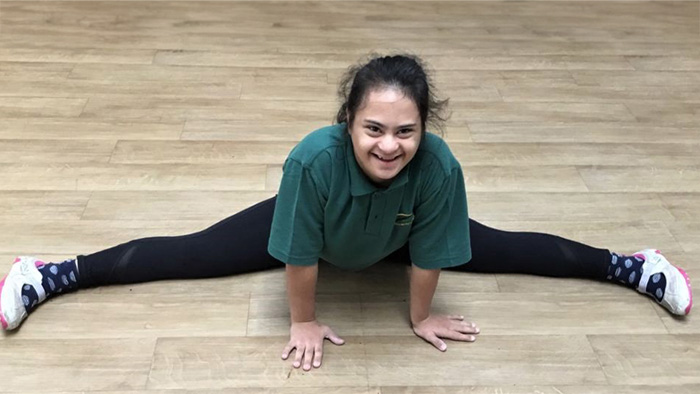PE & Sport

Level 1 - Movement Experiences
Movement experiences are fundamental to the development of all human beings and are particularly important to people with special needs. The input or ‘feeding in’ of movement experiences has to be concentrated and more continuous if people who are challenged in special ways are to realise their potential. To support this, Daventry Hill School uses Sherbourne Developmental Movement.
Sherborne Developmental Movement is an approach to teaching and working with movement that is both accessible, especially for people with minimal movement experience, and yet relevant at a very sophisticated level, particularly to people with a background in PE or dance.
The approach to teaching movement is firmly rooted in both observation of how children play in the normal course of their development and then grounding these observations in the philosophy and theory of Laban’s movement analysis.
There are two basic objectives within Sherborne Developmental Movement:
Awareness of Self
- This is gained through movement experiences that help the person concentrate so that they become aware of what is happening to their body, listening via touch and by feeling of inner physical sensations rather than by our usual way of looking and thinking. This helps lessen self-criticism and allows people to grow in terms of self-esteem and confidence both at a physical and emotional level.
Awareness of Others
- The next step is to begin to learn to move around and interact with others in ways that encourage the further development of trust and the building of positive relationships. These movement experiences enable the person to be appropriately supported while being encouraged to explore their unique creativity through shared movement activities.
Level 2 - Fundamental Movement Skills (FUNs)
In developing and teaching a child, we break down simple skills into key components to help the child learn and understand. Given the opportunity to learn a wide range of physical skills, children acquire the basic building blocks for competence, confidence, and motivation to try many physical activities and sports.
The fundamental movement skills of ability, balance and co-ordination are very important to a child’s physical development. When confident and competent in these skills, children can develop sport-specific and complex movement skills.
These skills allow children to enjoy sports and physical activities. Most importantly, with a firm grasp of the fundamental movement skills, a child may enjoy a long life of physical activity.
Agility, balance and co-ordination are developed at Daventry Hill School in the following 12 areas:
- Static Balance (one leg)
- Static Balance (Seated)
- Static Balance (floor work)
- Static Balance (small base)
- Dynamic Balance
- Dynamic Balance to Agility
- Counterbalance in Pairs
- Co-ordination with Equipment
- Co-ordination (Ball Skills)
- Co-ordination (movement patterns)
- Agility (ball chasing)
- Agility (reaction/response)
Level 3 - PE
Once basic fundamental movement skills are acquired, they are further developed through our physical education programme.
Our scheme is fully aligned to the National Curriculum and Ofsted requirements and focusses on the development of agility, balance and coordination, healthy competition and cooperative learning.
Level 4 - Sport
A broad sporting offer is delivered at Daventry Hill School. Sport allows students to apply the physical literacy and movement skills that they have developed throughout previous levels.
Students will access both individual and team sports to cover:
- Net and Wall
- Invasion
- Striking and Fielding
- Gymnastics
- OOA/Problem-Solving
- Dance
- Paralympic
- Athletics
- Physical Literacy
- Health and Fitness.
The first cycle (3 years) enables students to develop basic skills in all of these areas. The second cycle (2 years) enables students to consolidate, further develop and learn more advanced skills in selected sports.
